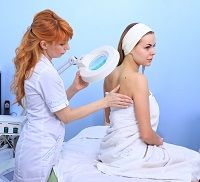Article
UK Study Finds Malignant Melanoma Spike in Senior Brits
Author(s):
Cancer Research UK had confirmed the steady increase in malignant melanoma incidences among individuals 65 years and older.
Cancer Research UK had confirmed the steady increase in malignant melanoma incidences among individuals 65 years and older.

Approximately an average of 5,700 seniors are diagnosed with melanoma each year compared with a mere 600 during the mid 1970s. There are 2,100 deaths from the disease reported annually.
Although age had long been considered one of the primary factors for melanoma, latest research discovered the recent shift in increased diagnosis as likely linked to the surge in cheap holiday packages, since the 1960s.
The cultural fascination of maintaining a tanned appearance at the expense of painful sunburn only added to the cause.
According to experts, even becoming sunburnt just once every 2 years could easily triple the risk of developing malignant melanoma.
Richard Marais, professor and Cancer Research UK's skin cancer expert based in Manchester, said, "It's worrying to see melanoma rates increasing at such a fast pace, and across all age groups. It is very important for people to take care of their skin in the sun. It is also important for them to keep an eye on their skin and seek medical opinion if they see any changes to their moles, or even to normal areas of skin. Melanoma is often detected on men's backs and women's legs but can appear on any part of the body."
To encourage safety and provide people to protect their skin this summer, Cancer Research UK has begun a partnership with NIVEA SUN.
Julie Sharp, MD, Cancer Research UK's head of health information, commented, "Many cases of malignant melanoma, the most serious form of skin cancer, are preventable by taking precautions in the sun and making sure you don't burn.”
Sun damage accumulates over time, so not only is evading sunburn and sunbeds key, but it’s also vital to learn about individual skin types to avoid overdoing it on the beach or even in the garden.
Sharp concluded, “You can burn at home just as easily as you can on holiday, so remember to spend time in the shade, wear a T shirt and a hat to protect your skin and regularly apply sunscreen that is at least Factor 15 and has four stars. Swapping bad sun habits for good ones could save your life."




